Environmental Impact
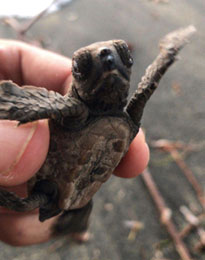
The narrow Coral Cove beach is an important nesting site for Hawksbill turtles (Eretmochelys imbricata), classified as “critically endangered” by the International Union for Conservation of Nature, the global authority on the status of the natural world and the measures needed to safeguard it.
Nesting would be completely devastated by the proposed development:
- construction activities on this small site would wreck the natural beach and nests physically by excavation machinery for demolition and foundations, buildings and utility services; run-off from construction materials would pollute the beach, sea and reef
- human activities during operation of a conventional hotel (use of beach and sea, beach furniture, noise and light pollution from traffic, buildings and restaurants etc.) will prevent nesting permanently – deterring females from coming ashore to make nests, disturbing the eggs in any nests that are laid and confusing hatchlings with artificial light from buildings
- tourist activity in the sea and water run-off from the hotel site risks damaging the mature meadow of sea grass essential for turtles to feed on including green turtles (Chelonia mydas) classified as “endangered” by the International Union for Conservation of Nature.
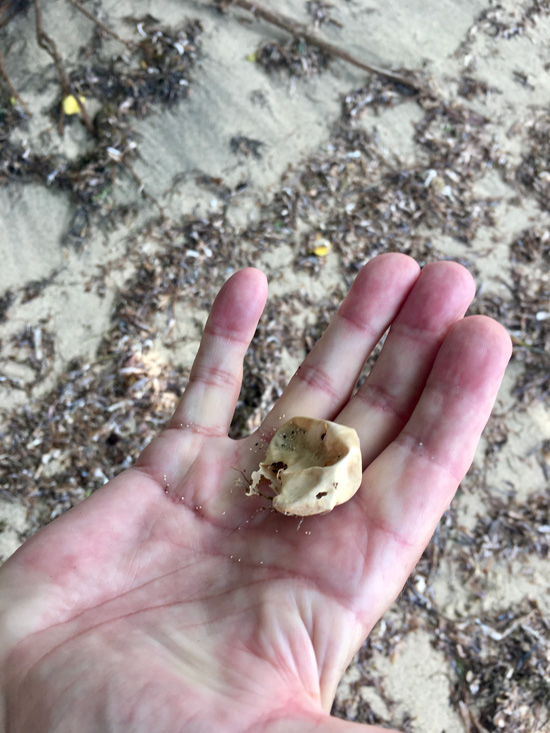
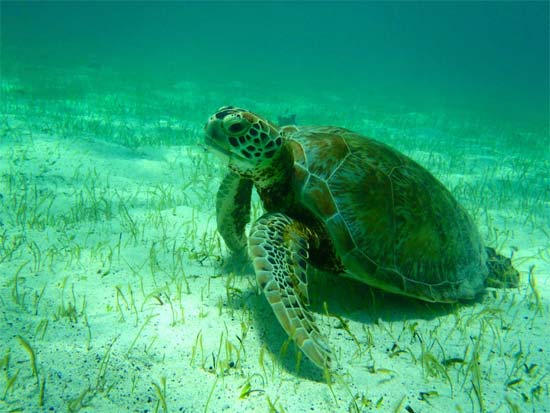
“Sea turtles are dependent on beaches for nesting. Uncontrolled coastal development, vehicle traffic on beaches, and other human activities have directly destroyed or disturbed sea turtle nesting beaches around the world. For example, lights from roads and buildings disorient hatchlings away from the sea, and vehicle traffic on beaches compacts the sand making it impossible for female turtles to dig nests. Turtle feeding grounds such as coral reefs and sea grass beds are damaged and destroyed by activities onshore, including sedimentation from clearing of land and nutrient run-off from agriculture. Beach restoration projects for protecting seaside buildings have also been found to be harmful, through dredging and sand filling.”
https://www.worldwildlife.org/species/sea-turtle
Damage to this nesting site would result in an international outcry from environmental organisations, make a laughing stock of the ‘Pure Grenada’ branding and risk the black-listing of Grenada on tourist websites.
Turtles have been on this planet in their current form for nearly 200 million years. They lived with the dinosaurs. They survived everything that has happened to the earth – until now when it looks like they will not survive human beings.
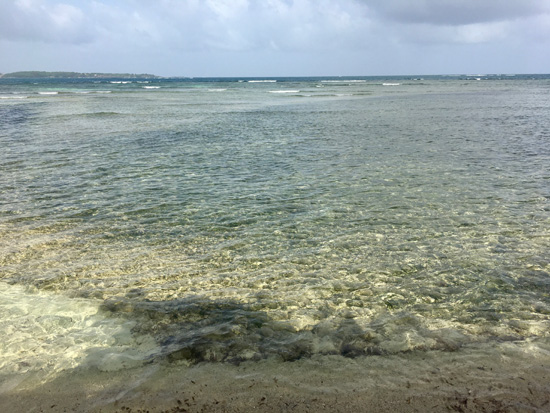
Combined with the development proposal to completely remove all remaining natural land vegetation on the site, intense human activities and resulting sedimentary and biological pollution of the sea will also affect adversely other marine and coastal life including:
- The sea grass beds essential for both green and hawksbill turtles
- The reef – an essential breeding and feeding habitat for many species
- Extremely rare green sea urchins – (Strongylocentrotus droebachiensis)
- White spotted eagle ray fish (Aetobatus narinari) and sting ray species that regularly visit the shallow waters to feed
- Hermit crabs
- Sea birds and shore birds that feed and nest along the beach, rocks and land vegetation including a pair of Ospreys (apparently nesting annually on the wild part of the site and feeding in the sea off the reef), green heron, egrets, waders, gulls, frigates and pelicans
- Land birds that live or hunt in the natural vegetation part of the site including barn owls and dove species including the endangered Grenadian Dove
- Small land mammals and reptiles including manicou and iguana.
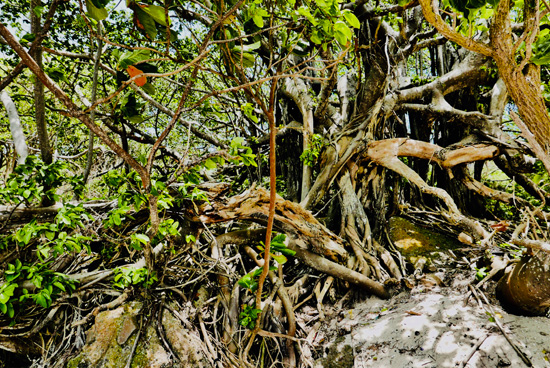
Moreover, the small beach is protected and contained by trees down to the sea, many of them ancient and deeply embedded. Some of these are manchineel trees (Hippomane mancinella) that, in rain, cause serious skin and eye lesions to humans.
Turtles (and sea urchins to some extent) are protected by law in Grenada under the conservation measures of the
Fisheries Regulations 1987 (SRO. 9) and it is a criminal offence to violate these laws. Specifically it is illegal to disturb turtle eggs or interfere with any turtle nest. But this has not stopped government-backed hotel developments from doing so. Including a huge scheme at Levera in the north of the island that will damage a globally important nesting site for leatherback turtles.
Grenada is a party and signatory to a number of regional and international conventions protecting species and marine and coastal eco-systems, including:
- UN Convention on Biodiversity
- UNESCO Convention for the Protection of the World Cultural and Natural Heritage
- Convention for the Protection and Development of the Marine Environment of the Wider Caribbean (a legally-binding regional agreement under the United Nations)
- UN SPAW Convention (Protocol for Specially Protected Areas and Wildlife)
- Convention on International Trade in Endangered Species (CITES).
As a signatory of United Nations Educational, Scientific and Cultural Organisation’s Convention for the Protection of the World Cultural and Natural Heritage, Grenada is required ‘To ensure that effective and active measures are taken for the protection, conservation and presentation of the cultural and natural heritage situated on its territory . . . (Article 5). “Natural heritage” includes “areas which constitute the habitat of threatened species of animals and plants of outstanding universal value from the point of view of science or conservation”.
Grenada is a member of the Caribbean Regional Ocean Scape Project (CROP) and the Eastern Caribbean Regional Ocean Policy (ECROP) aiming to achieve the “Blue Economy” to ensure the use of oceanic resources is sustainable through the maintenance of ocean ecosystems. Grenada receives financial and technical support for these from the Global Environment Fund through the World Bank and, through the OECS, the EU is funding the Biodiversity Support Programme for Coastal Environments (BioSPACE).
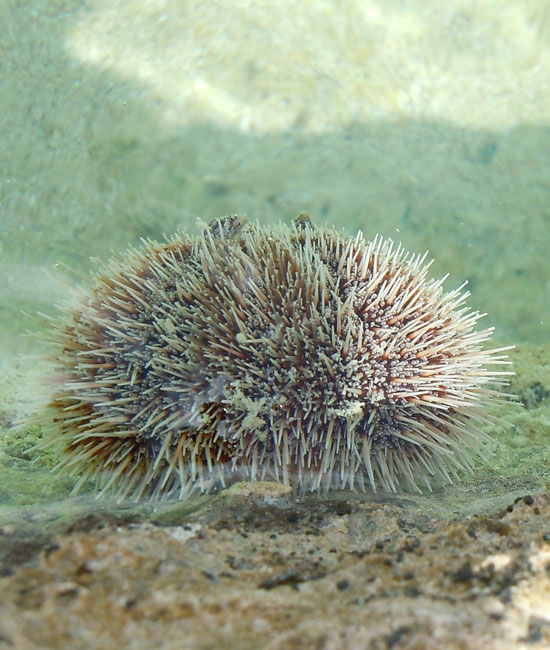
In a speech on 25 May 2021, the Minister for Climate Resilience and Environment celebrated the UN International Day for Biological Diversity (22 May) and said,
“All the latest scientific studies and reports tell us we are in a biodiversity emergency. We are losing species at unprecedented rates due to non-sustainable practices, and this is systematically destroying the living systems we are dependent upon for our own survival.”
It seems government can say the right things but then totally ignore them.